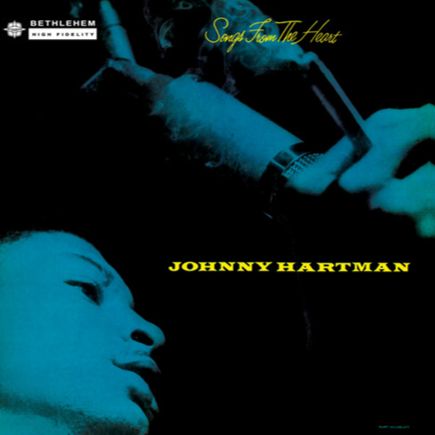Ain’t Misbehavin’: Fats Waller, Harlem et l’affirmation d’un art
Une chanson au cœur de la Harlem Renaissance
Composée en 1929 par Fats Waller et Harry Brooks, sur des paroles d’Andy Razaf, Ain’t Misbehavin’ dépasse le simple cadre du succès populaire. Pensée comme numéro d’ouverture de la revue Connie’s Hot Chocolates, présentée au Connie’s Inn, elle s’inscrit pleinement dans l’effervescence de la Harlem Renaissance. Dans un contexte de créativité afro-américaine intense, la chanson affirme une ambition artistique claire, en dialogue avec les grandes scènes new-yorkaises, notamment face au Cotton Club.
Écriture musicale et portée symbolique
Ain’t Misbehavin’ séduit par l’alliance d’une mélodie immédiatement mémorisable et d’harmonies raffinées, caractéristiques du style stride dont Waller est l’un des représentants majeurs. Le texte, centré sur la fidélité amoureuse face aux séductions urbaines, dépasse son époque. Cette tension entre légèreté apparente et sophistication musicale contribue à faire du morceau un emblème durable du jazz vocal, régulièrement réinterprété.
Louis Armstrong et le tournant décisif
Le destin du titre bascule lors des représentations au Hudson Theater, lorsqu’un jeune Louis Armstrong est invité à doubler l’orchestre de Leroy Smith. D’abord reléguée à la fosse, son intervention entre les actes devient le moment fort du spectacle. Saluée par le New York Times, cette prestation conduit à son intégration sur scène et marque une étape décisive vers une reconnaissance nationale durable.
La délicatesse de Johnny Hartman
Parmi les nombreuses relectures de Ain’t Misbehavin’, celle enregistrée par Johnny Hartman fin octobre 1955 à New York occupe une place singulière. Incluse dans l’album Songs from the Heart, elle illustre l’art d’un crooner de jazz au raffinement rare, capable de transformer une chanson populaire en une déclaration intimiste et profondément personnelle. À une époque où le bebop domine les instrumentistes et où le jazz vocal se divise entre showmanship et modernité expérimentale, il choisit une voie médiane, héritée des grands crooners mais enrichie d’une intensité émotionnelle propre.
Hartman, dont la voix de baryton veloutée demeure l’une des plus distinctives du jazz vocal, aborde Ain’t Misbehavin’ non pas comme un numéro léger et enjoué, mais comme une confession tendre. Là où d’autres privilégient le swing effervescent ou l’humour, il installe une atmosphère feutrée, presque nocturne, qui met en avant la sincérité du texte.
L’accompagnement contribue largement à cette réussite. Le trompettiste Howard McGhee apporte des ponctuations délicates, tour à tour lyriques et retenues, dialoguant subtilement avec la voix. Ralph Sharon, pianiste attentif et raffiné, structure l’harmonie avec fluidité, tandis que Jay Cave à la basse et Christy Febbo à la batterie instaurent une assise souple, privilégiant la retenue. Cet équilibre collectif met en valeur la profondeur expressive de Hartman, révélant un sens de l’intimité rarement égalé.
Ain’t Misbehavin’: Fats Waller, Harlem y la afirmación de un arte
Una canción en el corazón del Renacimiento de Harlem
Compuesta en 1929 por Fats Waller y Harry Brooks, con letra de Andy Razaf, Ain’t Misbehavin’ supera el marco del éxito popular. Concebida como número de apertura de la revista Connie’s Hot Chocolates, presentada en el Connie’s Inn, se inscribe plenamente en la efervescencia del Renacimiento de Harlem. En un contexto de intensa creatividad afroamericana, la canción afirma una ambición artística clara, en diálogo con las grandes escenas neoyorquinas, especialmente frente al Cotton Club.
Escritura musical y alcance simbólico
Ain’t Misbehavin’ seduce por la combinación de una melodía inmediatamente reconocible y armonías refinadas, propias del estilo stride del que Waller es figura clave. La letra, centrada en la fidelidad amorosa frente a las tentaciones urbanas, trasciende su época. Esta tensión entre ligereza aparente y sofisticación musical convierte la obra en un emblema duradero del jazz vocal.
Louis Armstrong y el punto de inflexión
El destino del tema cambia durante las funciones en el Hudson Theater, cuando un joven Louis Armstrong es invitado a reforzar la orquesta de Leroy Smith. Inicialmente relegado al foso, su intervención entre actos se convierte en el momento culminante del espectáculo. Elogiada por el New York Times, esta actuación impulsa su reconocimiento nacional y consolida definitivamente el lugar de Ain’t Misbehavin’ en la historia del jazz.
La delicadeza de Johnny Hartman
Entre las numerosas reinterpretaciones de Ain’t Misbehavin’, la grabada por Johnny Hartman a finales de octubre de 1955 en Nueva York ocupa un lugar singular. Incluida en el álbum Songs from the Heart, ilustra el arte de un crooner de jazz de refinamiento excepcional, capaz de transformar una canción popular en una declaración íntima y profundamente personal. En una época en que el bebop dominaba a los instrumentistas y el jazz vocal se debatía entre el espectáculo y la modernidad experimental, Hartman eligió un camino intermedio, heredero de los grandes crooners pero enriquecido con una intensidad emocional propia.
Hartman, cuya voz de barítono aterciopelada sigue siendo una de las más distintivas del jazz vocal, aborda Ain’t Misbehavin’ no como un número ligero y jovial, sino como una confesión tierna. Allí donde otros privilegian el swing efervescente o el humor, él instala una atmósfera íntima, casi nocturna, que resalta la sinceridad del texto.
El acompañamiento contribuye en gran medida a este logro. El trompetista Howard McGhee aporta matices delicados, ora líricos ora contenidos, dialogando sutilmente con la voz. Ralph Sharon, pianista atento y refinado, estructura la armonía con fluidez, mientras Jay Cave en el contrabajo y Christy Febbo en la batería instauran una base flexible, marcada por la sobriedad. Este equilibrio colectivo resalta la profundidad expresiva de Hartman, revelando un sentido de la intimidad pocas veces igualado.
Ain’t Misbehavin’: Fats Waller, Harlem e l’affermazione di un’arte
Una canzone al cuore della Harlem Renaissance
Composta nel 1929 da Fats Waller e Harry Brooks, su testo di Andy Razaf, Ain’t Misbehavin’ va oltre il semplice successo popolare. Pensata come numero d’apertura della rivista Connie’s Hot Chocolates, presentata al Connie’s Inn, si colloca pienamente nell’effervescenza della Harlem Renaissance. In un contesto di forte creatività afroamericana, la canzone afferma un’ambizione artistica chiara, in dialogo con le grandi scene newyorkesi, in particolare con il Cotton Club.
Scrittura musicale e valore simbolico
Ain’t Misbehavin’ colpisce per l’equilibrio tra una melodia immediatamente riconoscibile e armonie raffinate, tipiche dello stile stride di cui Waller è protagonista. Il testo, incentrato sulla fedeltà amorosa di fronte alle seduzioni urbane, supera il proprio tempo. Questa tensione tra apparente leggerezza e sofisticazione musicale rende il brano un emblema duraturo del jazz vocale.
Louis Armstrong e la svolta decisiva
Il destino del brano cambia durante le rappresentazioni all’Hudson Theater, quando un giovane Louis Armstrong viene invitato a rinforzare l’orchestra di Leroy Smith. Inizialmente relegato in buca, il suo intervento tra un atto e l’altro diventa il momento centrale dello spettacolo. Lodato dal New York Times, questo episodio segna una tappa decisiva verso il riconoscimento nazionale e consacra Ain’t Misbehavin’ nella storia del jazz.
La delicatezza di Johnny Hartman
Tra le numerose riletture di Ain’t Misbehavin’, quella registrata da Johnny Hartman alla fine di ottobre 1955 a New York occupa una posizione singolare. Inclusa nell’album Songs from the Heart, testimonia l’arte di un crooner jazz dal raffinatissimo stile, capace di trasformare una canzone popolare in una dichiarazione intima e profondamente personale. In un’epoca in cui il bebop dominava gli strumentisti e il jazz vocale oscillava tra spettacolo e modernità sperimentale, Hartman scelse una via mediana, erede dei grandi crooner ma arricchita da un’intensità emotiva tutta sua.
Hartman, la cui voce di baritono vellutata resta una delle più distintive del jazz vocale, affronta Ain’t Misbehavin’ non come un numero leggero e brioso, ma come una confessione tenera. Là dove altri privilegiano lo swing effervescente o l’umorismo, egli crea un’atmosfera ovattata, quasi notturna, che mette in risalto la sincerità del testo.
L’accompagnamento contribuisce ampiamente a questo risultato. Il trombettista Howard McGhee offre interventi delicati, ora lirici ora misurati, dialogando sottilmente con la voce. Ralph Sharon, pianista attento e raffinato, struttura l’armonia con fluidità, mentre Jay Cave al contrabbasso e Christy Febbo alla batteria creano una base morbida, improntata alla sobrietà. Questo equilibrio collettivo valorizza la profondità espressiva di Hartman, rivelando un senso dell’intimità raramente eguagliato.
Ain’t Misbehavin’: Fats Waller, Harlem, and the assertion of an art
A song at the heart of the Harlem Renaissance
Composed in 1929 by Fats Waller and Harry Brooks, with lyrics by Andy Razaf, Ain’t Misbehavin’ goes beyond mere popular success. Conceived as the opening number of Connie’s Hot Chocolates, staged at Connie’s Inn, it fully belongs to the vibrant context of the Harlem Renaissance. In a period of intense African-American creativity, the song asserts a clear artistic ambition, engaging directly with New York’s major stages, notably in contrast to the Cotton Club.
Musical writing and symbolic reach
Ain’t Misbehavin’ captivates through the balance between an instantly memorable melody and refined harmonies, characteristic of the stride style in which Waller was a leading figure. The lyrics, focused on romantic fidelity amid urban temptations, resonate far beyond their time. This tension between apparent lightness and musical sophistication has made the song a lasting emblem of vocal jazz.
Louis Armstrong and the decisive turning point
The song’s destiny shifted during performances at the Hudson Theater, when a young Louis Armstrong was invited to reinforce Leroy Smith’s orchestra. Initially confined to the pit, his between-acts performance quickly became the highlight of the show. Praised by The New York Times, this moment led to his inclusion on stage and marked a decisive step toward national recognition, securing Ain’t Misbehavin’ a permanent place in jazz history.
The delicacy of Johnny Hartman
Among the many reinterpretations of Ain’t Misbehavin’, the one recorded by Johnny Hartman in late October 1955 in New York holds a unique place. Included in the album Songs from the Heart, it illustrates the art of a jazz crooner of exceptional refinement, capable of turning a popular song into an intimate and deeply personal statement. At a time when bebop dominated instrumentalists and vocal jazz was divided between showmanship and experimental modernity, Hartman chose a middle path, rooted in the tradition of the great crooners yet enriched by his own emotional intensity.
Hartman, whose velvety baritone remains one of the most distinctive voices in vocal jazz, approaches Ain’t Misbehavin’ not as a light, playful number but as a tender confession. Where others favored effervescent swing or humor, he created a hushed, almost nocturnal atmosphere that highlighted the sincerity of the lyrics.
The accompaniment contributes greatly to this achievement. Trumpeter Howard McGhee offers delicate punctuations, alternately lyrical and restrained, subtly dialoguing with the voice. Ralph Sharon, an attentive and refined pianist, shapes the harmony with fluidity, while Jay Cave on bass and Christy Febbo on drums establish a supple foundation marked by restraint. This collective balance enhances Hartman’s expressive depth, revealing a sense of intimacy rarely equaled.
Autres articles – Otros artículos – Altri articoli
Ain’t Misbehavin’–19.07.1929–Louis ARMSTRONG
Ain’t Misbehavin’–02.08.1929–Fats WALLER
Ain’t Misbehavin’–13.07.1933–Duke ELLINGTON
Ain’t Misbehavin’–09.07.1935–Paul WHITEMAN & Jack TEAGARDEN
Ain’t Misbehavin’–03.03.1937–Jimmy MUNDY
Ain’t Misbehavin’–22.04.1937–Django REINHARDT
Ain’t Misbehavin’–xx.05-06.1938–Jelly Roll MORTON
Ain’t Misbehavin’–xx.xx.1944–Art TATUM
Ain’t Misbehavin’–18.05.1950–Sarah VAUGHAN


